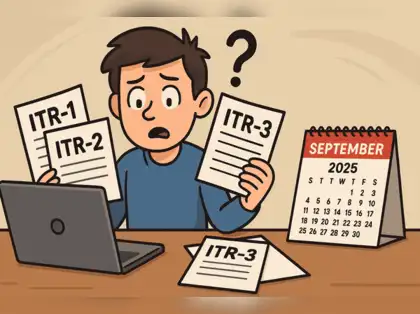Tax Benefits of Owning a Business
As a business owner, understanding the tax benefits that come with owning a business is essential. By taking advantage of these benefits, you can optimize your tax strategy and potentially save a significant amount of money. In this article, we will delve into the various tax benefits that you can enjoy as a business owner.
Deductible Business Expenses
One of the key tax benefits of owning a business is the ability to deduct legitimate business expenses. These expenses include but are not limited to:
Office rent or mortgage payments
Utility bills
Business travel expenses
Salaries and wages
Cost of goods sold
By keeping track of these expenses and properly documenting them, you can reduce your taxable income, thereby lowering your overall tax liability.
Home Office Deduction
If you operate your business from a home office, you may be eligible for a home office deduction. This deduction allows you to deduct a portion of your home expenses, such as rent or mortgage interest, property taxes, utilities, and maintenance costs, that are directly related to your home office.
To qualify for the home office deduction, you must meet specific criteria set by the Internal Revenue Service (IRS). These criteria include using the space exclusively for your business and it is your principal place of business.
Depreciation
Depreciation is another valuable tax benefit for business owners. It allows you to recover the cost of certain assets over time. By depreciating assets, you can deduct a portion of their value each year, reducing your taxable income.
It’s important to note that different assets have different depreciation rules, and the IRS provides guidelines on how to calculate depreciation for each asset class. Consulting with a tax professional can help ensure that you maximize your depreciation deductions while staying compliant with IRS regulations.
Retirement Contributions
Business owners have the advantage of being able to contribute to retirement plans with higher limits compared to individuals who are solely employed. By contributing to retirement plans such as a Simplified Employee Pension (SEP) IRA, a Solo 401(k), or a Defined Benefit Plan, you can not only secure your future but also enjoy tax benefits.
Contributions made to these retirement plans are typically tax-deductible, which means you can reduce your taxable income by the amount contributed. Additionally, the growth within these plans is tax-deferred until you withdraw the funds in retirement.
Pass-Through Tax Deduction
If you own a pass-through entity, such as a sole proprietorship, partnership, or S corporation, you may qualify for the pass-through tax deduction, also known as the Qualified Business Income (QBI) deduction. This deduction allows eligible business owners to deduct up to 20% of their qualified business income.
The pass-through tax deduction can provide significant tax savings, but it’s important to understand the specific rules and limitations associated with it. Consulting with a tax advisor can help you navigate the complexities and ensure you take full advantage of this deduction.

tax benefits of owning a business
Owning a business comes with its challenges, but it also offers numerous tax benefits. By leveraging deductible business expenses, home office deductions, depreciation, retirement contributions, and pass-through tax deductions, you can optimize your tax strategy and potentially save a substantial amount of money. Remember to consult with a tax professional to ensure you are taking advantage of all the tax benefits available to you as a business owner.
Frequently Asked Questions – Tax Benefits of Owning a Business
1. What are some tax benefits of owning a business?
Some tax benefits of owning a business include deductions for business expenses, the ability to claim tax credits, and the potential for lower tax rates for certain business structures.
2. Can I deduct my home office expenses if I own a business?
Yes, if you use a portion of your home exclusively for your business, you may be eligible to deduct home office expenses such as rent, utilities, and maintenance costs.
3. Are there any tax credits available for small business owners?
Yes, there are several tax credits available for small business owners, including the Small Business Health Care Tax Credit, Work Opportunity Tax Credit, and Research and Development Tax Credit.
4. How can owning a business help reduce my taxable income?
Owning a business allows you to deduct legitimate business expenses from your taxable income, which can help reduce the overall amount of income subject to taxation.
5. Are there any tax benefits for hiring employees?
Yes, there are tax benefits for hiring employees, such as the ability to deduct their wages and benefits as business expenses, as well as potential eligibility for certain tax credits related to hiring and training.
6. Can I carry forward business losses to offset future taxes?
Yes, if your business incurs a net operating loss, you may be able to carry it forward to offset future taxable income, reducing your tax liability in those years.
7. Are there any tax benefits for investing in equipment or property for my business?
Yes, there are tax benefits for investing in equipment or property for your business, such as the ability to deduct depreciation expenses over time or take advantage of Section 179 deductions for certain types of assets.
8. What tax benefits are available for self-employed individuals?
Self-employed individuals can take advantage of various tax benefits, including the ability to deduct business-related expenses, contribute to retirement plans with higher contribution limits, and claim the self-employment tax deduction.
9. Can owning a business help me save on healthcare costs?
Yes, owning a business may provide opportunities to save on healthcare costs, such as being eligible for tax deductions related to health insurance premiums or participating in Health Savings Accounts (HSAs) or Flexible Spending Accounts (FSAs).
10. Are there any tax benefits for starting a new business?
Yes, there are tax benefits for starting a new business, such as deducting startup costs, claiming the Research and Development Tax Credit for qualifying expenses, and potentially qualifying for certain state or local tax incentives.




